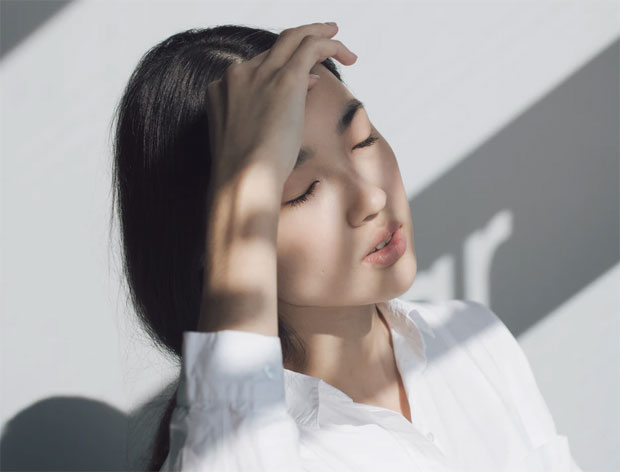What is the Difference Between a Migraine and a Headache?

What is the Difference Between a Migraine and a Headache?
Although it is common to refer to intense headaches as migraines, it is not accurate. Headache can be one of the symptoms of migraines, but there are also others. In some cases, painkillers, like the ones that can be found at Medicine Direct, might be enough, though before you try any drugs, you should contact a doctor. Being able to differentiate between those two can help you deal adequately with the problem. Read on to learn the difference between a migraine and a headache.

The Difference Between a Migraine and a Headache
What is a headache?
Headaches are classified into two types: primary and secondary headaches. The first group consists of headaches that are independent — they are not caused by other medical issues. Secondary headaches, on the other head, are results of other health problems, such as medications or infections.
One of the most common primary headaches is a tension headache. People who experience this type of headache feel like there was a tight band pressing into their heads. There are many factors that could be causing primary headaches —zas the most common ones are:
- Hunger
- Not getting enough sleep
- Poor posture
- Anxiety
Cluster headaches, on the other hand, are usually experienced on one side of the head. People with cluster headaches usually experience them daily for weeks or even months. They are often caused by:
- Intense physical activity
- Bright light
- High altitude
Sinus headaches are caused by swollen sinus passages, which usually occurs when a person is sick. People with sinus headaches feel pain behind the eyes, nose, and cheeks.

What is a migraine?
Although headache is one of the most common symptoms of migraine, there are also other symptoms such as nausea, a sense of tiredness, problems with seeing, or sensitivity to light. What’s more, people with migraines don’t even have to experience headaches. Although it is not always the case, the headaches caused by migraines are usually felt on one side of the head. As is the case with headaches, there are different types of migraines. Shortly before an episode occurs, some people with migraines experience aura — a sign, that they will experience migraine soon. It could be problems with focusing, or clear thinking, seeing lights, but also feeling untypical sensations. In the case of other types of migraine, there is no aura at all, though yet other people might notice some signs that an episode is coming even days before it finally happens. In this case, their mood might be worsened — depression, and losing temper quickly are some of the signs. In other cases, people could have an increased appetite or experience constipation.

Okay, but what are the causes of migraines?
- Allergies often cause blood vessels to be inflamed, which can cause migraines
- Genetics is another reason. If your parents or grandparents are experiencing migraines, then the same could happen to you
- Migraines are often caused by changes in hormones in women. That’s why also contraceptives can be the culprit
- Drinking alcohol increases blood flow to the brain, which can lead to headaches and migraines
- Stress is yet another common cause of migraines
There is no one medication that would work for every type of migraine. Depending on the severity of the symptoms, painkillers, such as ibuprofen or aspirin, which are often used as migraine medication in the UK but also in other countries, might be enough to make it possible for a person to function normally. Other common remedies include taking melatonin. If you are not a trained medical professional, you should contact a doctor before you try different methods. People who experience severe migraines might need prescription drugs, such as beta-blockers. If the migraines are caused by stress, then antidepressants might be helpful as well.
Apart from taking medication, there are also other things that patients could try doing to decrease the frequency of migraine episodes.
- If you’ve noticed that after eating some foods and drinking beverages, you often experience migraines, then you should consider abstaining from their consumption. Everyone is different, but both caffeine and alcohol often cause migraines.
- Lack of sleep is a common cause of migraines. If you have trouble falling asleep at night, make sure that you go to bed and wake up at the same time every day, even on the weekends. This way, you’ll fall asleep faster. Try to avoid using your smartphone or laptop before going to bed. LED lights prevent your body from releasing melatonin early, which decreases your quality of sleep. At the same time, strong light could be the cause of migraine headaches as well.
- Start exercising regularly or meditating. Both of those activities will help you relax and decrease your stress levels. If you are experiencing migraines because of anxiety, then making sure that your mind is well taken care of could be very helpful to completely overcome migraines and to ensure that you are no longer controlled by them.

Before you try any of those methods, remember to contact a doctor first. Migraines and headaches are caused by different factors, which means that your efforts might not bring the results if you haven’t correctly diagnosed the causes. Both headaches and migraines can make everyday functioning difficult, but if the root causes are diagnosed, then a change of lifestyle or medications can bring much-needed relief.
Guest Article. Contains a sponsored link.



